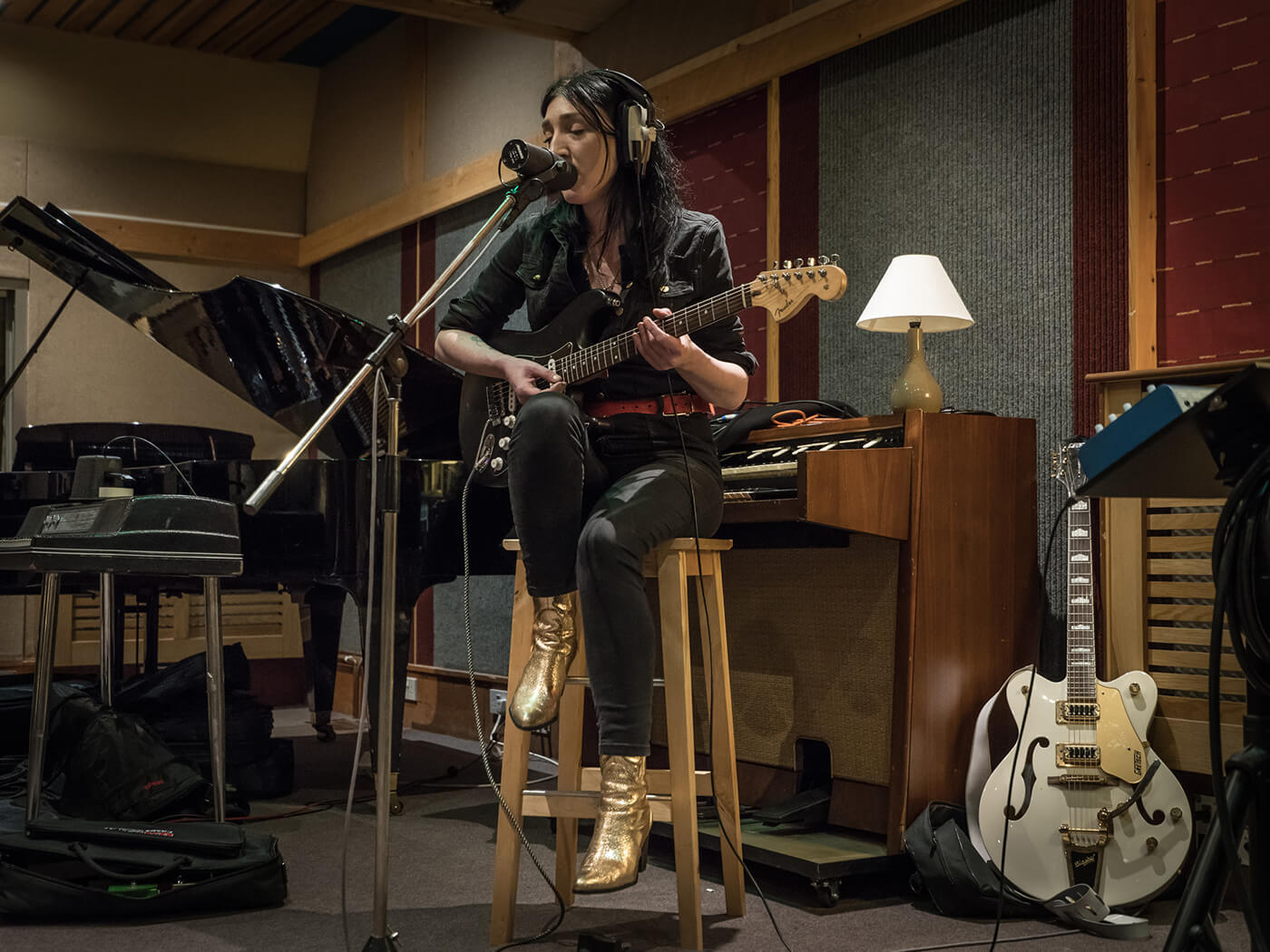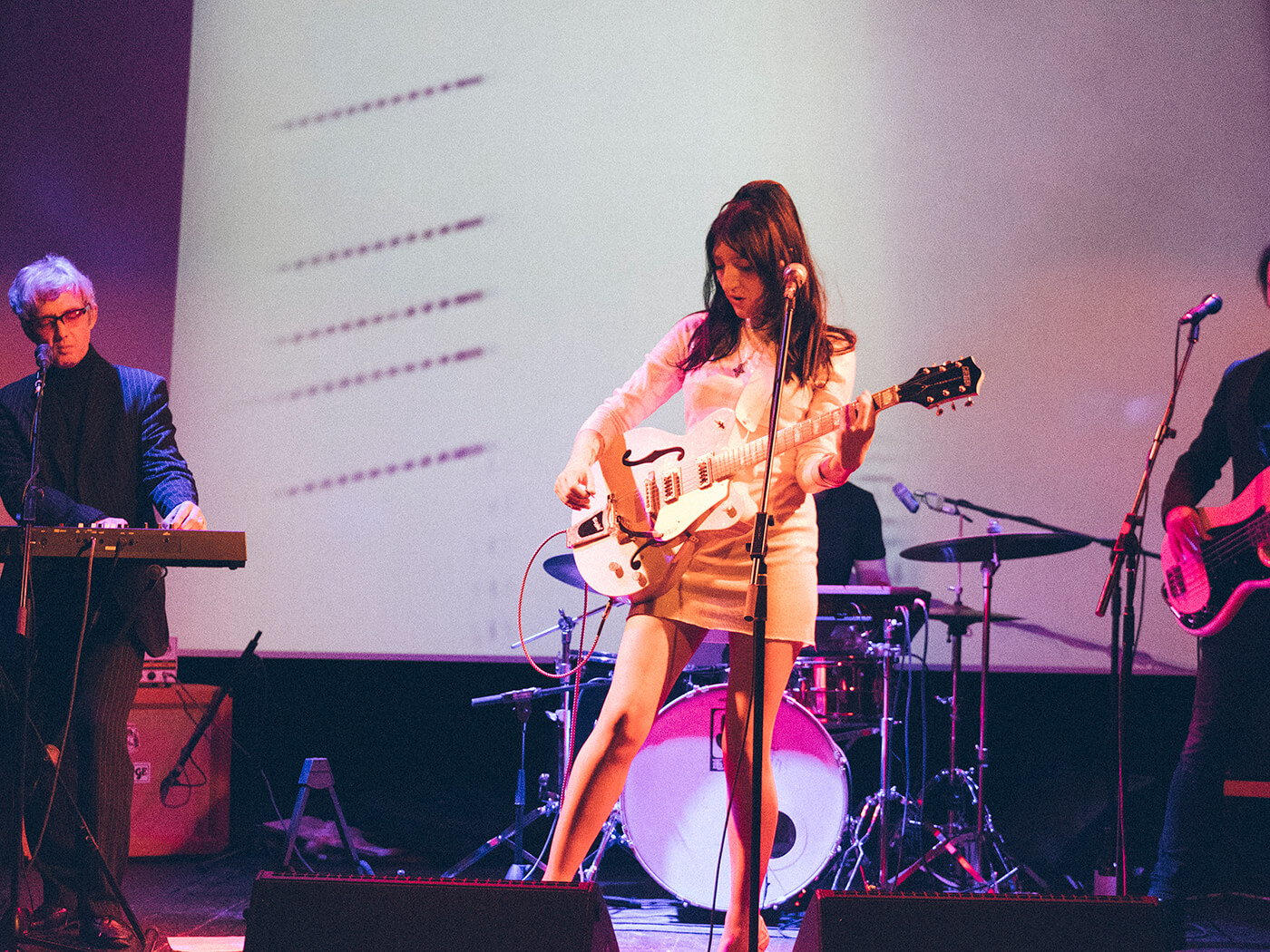Related Tags
The guitarist’s guide to boosting your creativity
Creating innovative new music requires real drive, commitment and an abundance of raw talent. But for some it can be as tortuous as it is revelatory. Here’s how to overcome common hurdles in the creative process.

Image: Jon Davey
In an era when the musical instrument market is awash with ever more impressive sonic options, it’s tempting to assume that the process of creating music is getting easier. Not so. While technological advances certainly expand the range of sounds on offer, the whole process of writing and composing new music that is unique, brave, revelatory and beautiful remains as challenging and elusive as ever.
While most musicians develop their own techniques for writing, the reality is that even the most experienced writers hit creative brick walls. At such times it can be worth reassessing the way that you work. By shining a light on your working methods it may be possible to refine your processes and empower yourself to create even more inspiring and innovative works.

Getting inspired
“Creativity,” observed Albert Einstein, “is seeing what everyone else has seen, and thinking what no one else has thought.” Certainly, it is a highly personal and individual process with the imagination, thoughts, emotions and memories of the creators fuelling the idiosyncratic whole. This is abundantly clear when it comes to the first stage in the process – the inspiration.
“Getting inspired to create can always be a challenge for musicians and it’s hard to pinpoint exactly where the creativity comes from,” says Craig Stratton of Modulus Quartet, a London-based string ensemble that prides itself on working with contemporary composers and performing new material. “There are countless things around us, sights and sounds that can trigger our creativity. We can be inspired by listening and watching others. Let’s not forget too, that great art, music and literature were created through love and tragedy.”
When it comes to creating new music and lyrics, the possibilities are infinite. A title or feeling alone can spark an entire narrative, as can an overheard phrase, a powerful emotion, sorrow, elation, discontentment or a desire for political change. The key is to be attuned to spotting inspiration and acting upon it. Many simply wait for inspiration to hit. But for working creators this is not an option.

Set your own deadline
The overarching advice is to ‘just get on with it’. The key is to dedicate yourself to the craft of songwriting or composing, putting in the hours even when you appear to have little to show for it at times.
“If I turn up and dedicate my time and focus, something will happen and the more frequently I do it, the quicker and richer the results will be,” says singer-songwriter and musician Emily Breeze, who teaches at BIMM in Bristol. Breeze says she has long been impressed by the disciplined songwriting approach adopted by Nick Cave.
“Apparently he has an office with a piano and a typewriter and works on his songs from nine to five as opposed to waiting for the planets to align and a fully formed song to emerge out of a dream. He says, ‘inspiration is a word used by people who aren’t really doing anything. I go into my office everyday when I am in Brighton and work whether I feel like it or not is irrelevant’.”
It’s an ethos cited by numerous creative minds across the centuries. As Picasso put it: “‘Inspiration exists, but it has to find you working’.”
Creative spark
For most songwriters and composers, the simple germ of a good idea is enough to compel them to begin. “Sometimes, I’ll wake up with an idea that I have to sing into my iPhone immediately,” says Bishi Bhattacharya, a London-based singer-songwriter, musician, producer, composer and DJ. “Sometimes musical phrases come to me when I’m on the tube. Sometimes, ideas arise from just improvising with instruments & pedals.”
As a teenager, Bishi says she would deconstruct songs, which she says was a great method to unlocking why she loved a piece of music. “I apply the same approach when I study orchestral scores or Indian ragas. I want to experiment with techniques to unlock my creativity more. As I manage myself & run a platform called WITCiH, I am always looking for creative techniques to discard the associated stress with spinning a lot of plates.”

Writing techniques
Songwriting and composing techniques vary wildly of course. Some writers will flesh out a motif, a skeleton chord sequence or a top-line melody, by which time a lyrical phrase or theme may have presented themselves. Others, like Emily Breeze, will focus on lyrics first, and these will drive the direction of the song.
“I am a lyric-led writer, so without a theme or a line, a chain of chords carries no meaning,” she says. “I recently wrote a song about Anna Nicole Smith after seeing her wedding photos. A pretty pastel chapel, rows of vacant foldaway chairs and Anna, statuesque in a virginal white orgasm of frothy lace and roses, gazing down fondly on her intended, 89-year-old Texan oil billionaire J Howard Marshall (63 years her senior) in white tux and wheelchair.
“The photo is genuinely beautiful and struck me as the most extreme example of the transactional nature of love. Female anti-heroes inspire me and I think she is brilliant, terrible and thrillingly three dimensional.”
Breeze says she enjoyed the voyeuristic research process and says this informed the chords. “I wanted something that sounded like a cross between Link Wray’s Rumble and a Bond theme with a strip club beat and a cellophane sheen to the production. Of course, it probably sounds like none of these things but I was reaching out and am proud of the results.”

Coping with creative block
Having a strong, clear idea from the outset is invaluable when creating new work. But even if the writer only has the sketchiest of ideas – just a phrase, a motif or two chords – the general advice is to just start and not to worry if some of it sounds terrible at first. Don’t be tempted to start editing or seek perfection as you go along, but explore and exploit your thought processes as fully as possible.
But for all those musicians blessed with a prolific creative output, there are an equal number for whom the process is utterly torturous. The problems arise of course when inspiration fails to appear in the first place or you reach a creative cul-de-sac. In such situations, the general advice is to step away and try something entirely different.
“I would advise any musician who feels that they are stuck creatively to meet with other artists, to listen to music, to read, and of course to practice, even if it’s just technical work,” says Craig Stratton of Modulus Quartet. “There’s nothing like a social gathering to inspire creativity and you certainly don’t need the instruments to generate artistic ideas.”
It’s a view echoed by Bishi Bhattacharya. “I’d encourage people to try writing different styles & experiment in the writing process with other people, where you can combine your strengths. When you are on the same wavelength, only good things will develop.”
Making changes
Some believe that creators who are struggling with their work must take an even broader approach, making changes to their lifestyles and wellbeing in order to flourish creatively. Andrew Armour, senior business lecturer at BIMM in London, says creative people will have high drive but will inevitably pile pressure on themselves.
“We often talk about ‘flow’, that feeling of almost timeless focus and dedication that people get when they are ‘in the zone’,” he says. “To some people, this drive can appear unreasonable and even obsessive, and that puts a lot of self-pressure on talented people themselves and on their friends and family. Recognising this and learning how to balance that kind of drive, is something all creatives have to deal with.”
Armour highlights the need for creators to be kind to themselves, focusing more on the present and the small step-by-step achievements. “Being resilient means focusing on the small gains, the steps towards where you want to go,” he says.
He also advises creators to make slight changes to their systems and habits. “Manage yourself and be autonomous, as that is incredibly positive,” he says. “What do you need to stop doing? What can you start doing? What do you need to do more of?”
Armour advises musicians to keep mentally fit too, by exercising “that curiosity muscle”, perhaps looking at areas of interest outside the creative industries such as history, science or cooking. By focusing on something else, creators will feel refreshed when they return to their work, he says.

Self-help techniques
One self-help exercise that can prove extremely useful, he says, is the Pomodoro technique. “It simply requires working very intensely, in short bursts of 20-30 minutes, then stopping, then starting again,” he says. “It builds a freshness and a focus.”
He also advises creative people to avoid spending too much time “regretting the past” or “wishing about the future”. Accept that creating is a frustrating process and most people get stuck, he says. Then move on. Everyone has to find their own way to build what suits them and take care to build what is important for you, and your work.”
It’s a view echoed by Emily Breeze, who believes there is a danger of overthinking the whole creative process. “There are two ends of a pole with a sliding scale,” she says. “On one end we have a careerist or academic approach, which analyses itself out of existence through considering how the song will be received before it has had a chance to develop and the creative choices will be governed by data and trends. Then on the other end of the pole, we have the tear-stained diary entries of the self-indulgent poet who believes that their emotions and experiences deserve to be cast in bronze and applauded for eternity with no consideration for technique, editing or audience appeal. Trying to strike a balance between these two poles on a line that is constantly moving is a fascinating challenge that keeps me in the game.”
For more features, click here.
